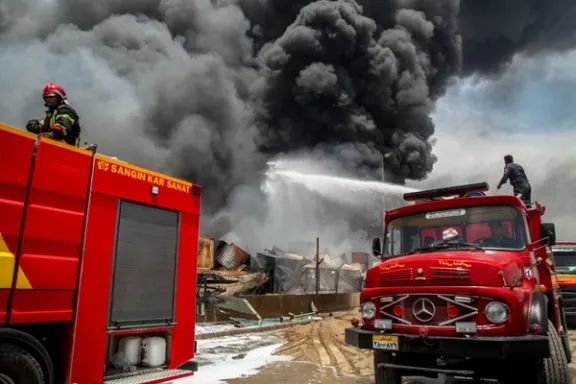Following the recent twelve-day war with Israel, many Iranians are asking: What truly happened? Where do we stand now? And what is the realistic path forward?
Prevailing narratives misdiagnose the crisis. They fall into three categories:
The government’s narrative casts Iran as victorious. Yet the facts suggest otherwise.
Iran suffered serious losses: senior military figures were killed, defense systems degraded, and critical parts of its nuclear and missile infrastructure were hit. In return, Iran’s retaliatory strikes did not shift the balance.
Misrepresenting this as triumph only reinforces poor decisions.
Regime-change advocates imagine foreign military pressure will fracture Iran’s security apparatus and cause collapse. But this view underestimates the cohesion of Iran’s coercive institutions and the self-interest of foreign powers, who are unlikely to commit to regime change.
The assumption that mass defections would yield democratic transition lacks grounding.
Structuralist perspectives also misplace blame.
One variant cites imperialism and calls for confrontation with the West. Another urges nuclear armament to balance power. But both ignore domestic dysfunction and corruption, and the risks of pursuing nuclear weapons now.
National strength requires more than deterrence—it needs capable, legitimate governance.
Understanding the crisis
The Islamic Republic has become a driver of national weakness. Two trends define this: a confrontational US posture and a disrupted power balance weakening Iran.
Decades of mistrust between Tehran and Washington—rooted in the 1953 coup and 1979 hostage crisis—have been worsened by missed diplomatic openings.
Supreme Leader Ali Khamenei consistently rejected efforts by moderate president Ali Akbar Hashemi Rafsanjani and others to improve ties, viewing diplomacy as infiltration.
Even after the 2015 nuclear deal, his stance blocked normalization. Similarly, Iran’s hardline stance on Israel has drained resources and diplomacy, disconnected from national interests.
Key missteps have weakened Iran's power since the theocracy's inception: from purging the military after the revolution to abandoning arms deals, and taking aggressive anti-Western positions.
The "Look East" strategy, replacing Western ties with China and Russia, has brought limited gains.
These ties emerged from isolation, not strategy. Russia withheld arms and reversed support for Iran’s enrichment rights. China has complied with sanctions and avoided defense ties.
These partnerships reflect weakness, not strength.
The core of the problem
Iran’s political structure is inseparable from the Supreme Leader.
Khamenei has shaped nearly all key decisions for over three decades. Velayat-e Faqih concentrates power in an unelected cleric, undermining accountability.
Why should governance belong to clerics? Democracies allow voters to remove failed leaders. In Iran, the Supreme Leader claims divine legitimacy beyond electoral scrutiny.
The 1989 constitutional revision gave him unchecked power, while the Assembly of Experts is functionally powerless.
Khamenei has deepened internal divisions—between loyalists and critics, and between state-enforced norms (like forced hijab) and citizens who reject them.
The state spends resources policing women and dissent rather than addressing threats. The result: emigration of skilled professionals, unqualified loyalists in office, and decisions made by an isolated circle.
This erodes Iran’s capacity and sovereignty.
A path forward?
Recent gestures in Tehran—nationalistic concerts and reformist figures, recently reappearing on state TV after years of exclusion—don’t address the crisis’s roots. Iran needs internal transformation and rebuilding of national power through institutional change.
Change must come from within—via elite and popular pressure—not foreign intervention, which would prolong the crisis and invite geopolitical rivalry.
One path is sustained pressure compelling Khamenei to step down and transfer power to a transitional authority.
During this interim period, a constituent assembly could draft a democratic constitution. That authority could then oversee a national referendum and free elections.
Institutions that block broad participation—like the Guardian Council—should be dissolved. Only fully open elections, inclusive of all political currents, can restore national sovereignty.
Democratic governance—paired with efforts to rebuild military, economic, and institutional capacity—offers a viable path.
A legitimate, inclusive state can deter threats, foster cohesion, and let Iranians shape their future.
Iran doesn’t need another myth. It needs a transformation grounded in realism, responsibility, and renewed commitment to national power through democratic means.














